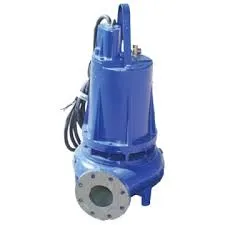Lao
- Afrikaans
- Albanian
- Amharic
- Arabic
- Armenian
- Azerbaijani
- Basque
- Belarusian
- Bengali
- Bosnian
- Bulgarian
- Catalan
- Cebuano
- Corsican
- Croatian
- Czech
- Danish
- Dutch
- English
- Esperanto
- Estonian
- Finnish
- French
- Frisian
- Galician
- Georgian
- German
- Greek
- Gujarati
- Haitian Creole
- hausa
- hawaiian
- Hebrew
- Hindi
- Miao
- Hungarian
- Icelandic
- igbo
- Indonesian
- irish
- Italian
- Japanese
- Javanese
- Kannada
- kazakh
- Khmer
- Rwandese
- Korean
- Kurdish
- Kyrgyz
- Lao
- Latin
- Latvian
- Lithuanian
- Luxembourgish
- Macedonian
- Malgashi
- Malay
- Malayalam
- Maltese
- Maori
- Marathi
- Mongolian
- Myanmar
- Nepali
- Norwegian
- Norwegian
- Occitan
- Pashto
- Persian
- Polish
- Portuguese
- Punjabi
- Romanian
- Russian
- Samoan
- Scottish Gaelic
- Serbian
- Sesotho
- Shona
- Sindhi
- Sinhala
- Slovak
- Slovenian
- Somali
- Spanish
- Sundanese
- Swahili
- Swedish
- Tagalog
- Tajik
- Tamil
- Tatar
- Telugu
- Thai
- Turkish
- Turkmen
- Ukrainian
- Urdu
- Uighur
- Uzbek
- Vietnamese
- Welsh
- Bantu
- Yiddish
- Yoruba
- Zulu
Telephone: +86 13120555503
Email: frank@cypump.com
ພ.ຈ. . 21, 2024 10:25 Back to list
slurry recirculation pump
Understanding Slurry Recirculation Pumps Functionality and Importance
Slurry recirculation pumps play a crucial role in various industrial processes where the handling of slurries, mixtures of solid particles and liquids, is required. These pumps are specifically designed to manage the unique challenges posed by slurries, including high viscosity, abrasive materials, and the need for constant mixing. This article delves into the functionality, types, applications, and maintenance of slurry recirculation pumps, highlighting their significance in different sectors.
Functionality of Slurry Recirculation Pumps
At their core, slurry recirculation pumps are tasked with transporting abrasive and viscous mixtures from one location to another within a processing system. They function by converting mechanical energy into hydraulic energy, allowing the movement of slurries through pipelines and processes. Slurry pumps are designed to handle the solid content efficiently, minimizing abrasion and wear on the pump components.
There are two main types of pumps commonly used for slurry applications centrifugal pumps and positive displacement pumps.
1. Centrifugal Pumps These are the most commonly used type of slurry pump. They utilize rotational energy from a motor to propel the slurry through a volute or a casing. The design allows them to achieve high flow rates, which is essential for continuous operations in industries such as mining, wastewater treatment, and chemical processing.
2. Positive Displacement Pumps These pumps function differently by trapping a fixed amount of slurry and then forcing it through the discharge pipe. They are excellent for high-viscosity slurries and applications requiring precise flow control. Although they may operate at lower speeds than centrifugal pumps, they are incredibly effective for specific applications.
Applications of Slurry Recirculation Pumps
Slurry recirculation pumps find applications across many industries
1. Mining and Mineral Processing In mining operations, slurry pumps are used to transport ore and tailings. They handle the abrasive nature of these materials while ensuring efficient processing of valuable minerals.
2. Wastewater Treatment In wastewater treatment facilities, slurry pumps are instrumental in moving sludge and other solid-liquid mixtures. Effective transport and recirculation of this material is vital for maintaining a healthy operational system.
slurry recirculation pump

3. Chemical and Petrochemical Industries These pumps are also essential in chemical processing plants, where they transport various slurries and assist in mixing reactions. Their ability to handle corrosive materials makes them suitable for this sector.
4. Construction In construction, slurry pumps are employed during foundation work and tunneling operations, particularly for transporting cement slurries or other heavy mixtures.
Maintenance of Slurry Recirculation Pumps
Regular maintenance is essential for ensuring the longevity and efficiency of slurry recirculation pumps. Here are some key maintenance practices
1. Routine Inspections Regularly inspect the pump components for wear and tear. Abrasive materials can cause significant damage over time.
2. Seal Checks Ensure that seals and gaskets are functioning correctly to prevent leaks and maintain pressure.
3. Bearing Lubrication Proper lubrication of bearings helps in reducing friction and wear, extending the pump's operational life.
4. Monitoring Performance Keep an eye on flow rates and pressure readings. Any significant changes could indicate a malfunction or clogging.
5. Cleaning Periodically clean the pump and surrounding areas to prevent buildup of materials, which can affect performance.
Conclusion
Slurry recirculation pumps are vital components in many industrial processes, enabling the effective transport and management of slurries. Their specialized design, tailored to handle abrasive and viscous materials, underscores their importance across various sectors such as mining, wastewater treatment, and chemical processing. By adhering to proper maintenance practices, industries can ensure the reliable operation of these pumps, ultimately leading to enhanced productivity and reduced downtime. The continuous evolution of slurry pump technology promises even greater efficiency and performance in the future, further solidifying their role in modern industrial applications.
-
Heavy-Duty Mining Sludge Pumps - Wear-Resistant Slurry Handling
NewsAug.02,2025
-
Horizontal Split Case Pump with GPT-4 Turbo | High Efficiency
NewsAug.01,2025
-
ISG Series Pipeline Pump - Chi Yuan Pumps | High Efficiency, Durable Design
NewsAug.01,2025
-
Advanced Flue Gas Desulfurization Pump with GPT-4 Turbo | Durable & Efficient
NewsJul.31,2025
-
ISG Series Vertical Pipeline Pump - Chi Yuan Pumps | Advanced Hydraulic Design&Durable Construction
NewsJul.31,2025
-
ISG Series Vertical Pipeline Pump - Chi Yuan Pumps | Energy Efficient & Low Noise
NewsJul.31,2025










